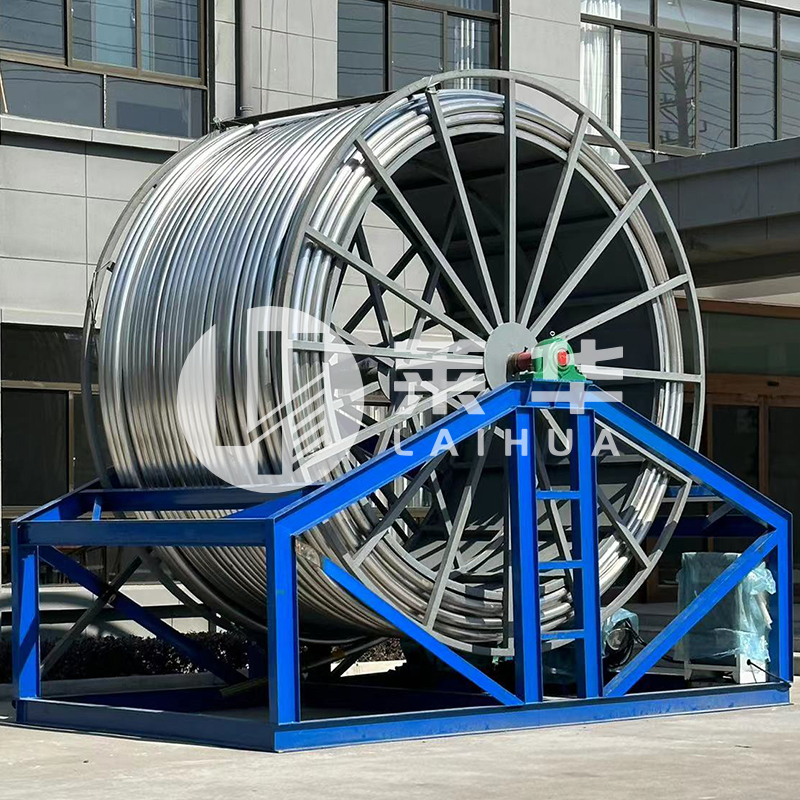Cat:Products
Continuous tubing, also known as flexible tubing or flexible tubing, is widely used in the fields of well workover, logging and drilling, etc. Its pro...
See Details
In the realm of industrial piping, few materials match the resilience and reliability of stainless steel continuous oil pipe. Engineered for seamless performance, these pipes have revolutionized the transportation of oil, ensuring efficiency and longevity even under the most arduous conditions. Their unique attributes make them indispensable in sectors where durability and contamination resistance are paramount.
At its core, a stainless steel continuous oil pipe is a tubular conduit fabricated from high-grade stainless steel, designed to deliver oil uninterruptedly over vast distances. The term “continuous” denotes the manufacturing process that produces pipes without joints or welds, significantly reducing potential points of failure. This seamless construction enhances the pipe’s structural integrity, making it less susceptible to leaks, corrosion, and fatigue—a critical advantage in oil transport where safety and reliability cannot be compromised.
The intrinsic properties of stainless steel elevate these pipes above their conventional counterparts. With an exceptional resistance to oxidation and corrosive agents, stainless steel withstands the aggressive environments commonly encountered in oil fields and refineries. The alloy’s chromium content forms a passive oxide layer on the surface, shielding the metal from rust and deterioration. This self-healing mechanism ensures that minor abrasions do not escalate into severe damage, thereby prolonging the service life of the pipeline infrastructure.
Beyond corrosion resistance, stainless steel continuous oil pipes offer impressive mechanical strength. Their ability to endure high pressures and fluctuating temperatures makes them ideal for oil transmission systems that experience extreme operating conditions. Moreover, the material’s toughness ensures resilience against physical impacts and vibrations, which are inevitable in subterranean and offshore applications.
Another salient benefit lies in the hygienic aspect of stainless steel pipes. The smooth internal surface minimizes friction and prevents the accumulation of residues, which could otherwise contaminate the oil and degrade its quality. This characteristic not only facilitates efficient flow dynamics but also reduces maintenance downtime and operational costs. In an industry where purity and consistency are vital, this advantage cannot be overstated.

The manufacturing process of continuous stainless steel oil pipes is equally critical. Typically produced through a cold drawing or pilgering technique, these pipes achieve precise dimensional tolerances and a superior surface finish. The absence of welding seams eliminates weak points, making the pipes more reliable over long-term use. Such meticulous craftsmanship translates into enhanced safety standards and compliance with stringent industrial regulations.
Furthermore, the sustainability aspect of stainless steel pipes deserves recognition. Their longevity means fewer replacements and reduced material waste. Stainless steel is also fully recyclable, allowing industries to adopt greener practices without sacrificing performance. This aligns with the growing emphasis on environmental responsibility within the energy sector.
Stainless steel continuous oil pipes represent a fusion of advanced metallurgy and precision engineering. They deliver unparalleled durability, corrosion resistance, and operational efficiency essential for the demanding oil transport industry. Investing in these pipes not only ensures safer and cleaner oil transmission but also offers a cost-effective solution over time through reduced maintenance and longevity. As the energy landscape evolves, the reliance on such robust infrastructure will undoubtedly intensify, underscoring the critical role of stainless steel continuous oil pipes in powering the world.

Contact Us